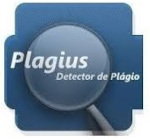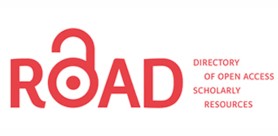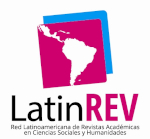MAPPING THE TRAINING OF BASIC EDUCATION TEACHERS WHO WORK IN DIVERSITY CONTEXTS IN THE SERIDÓ-RN REGION
Keywords:
Diversity, Teacher training, InclusionAbstract
This article presents the analysis of aspects related to the training of teachers and coordinators of the basic education network in the Seridó region, covering 25 municipalities and their respective schools. It is a qualitative research of exploratory and descriptive character, which used the application of questionnaires with the teaching staff of these institutions, addressing questions about their training as a professional and their difficulties when teaching in contexts of diversity and inclusion. The main theoretical references used were Lobo (2008), Nunes (2001) and Rodrigues and Rodrigues (2011). One of its objectives is to identify the training and qualification needs of basic education teachers who work in contexts of diversity and the intention to create a Stricto senso postgraduate program in the area of Education and diversity, at the Higher Education Center (CERES/UFRN) Campus Caicó - RN. Emphasizing then, the need for specific courses in the area of education that address the inclusive perspective and the performance in contexts of diversity, and how much this training benefits not only education professionals, but all other individuals inserted in this perspective.
Downloads
References
BRASIL. Lei n° 13.005, de 25 de junho de 2014. Aprova o Plano Nacional de Educação.
BRASIL. Lei nº 13.146, de 6 de julho de 2015. Institui a Lei Brasileira de Inclusão da Pessoa com Deficiência (Estatuto da Pessoa com Deficiência). Disponível em: <http://www.planalto.gov.br/ccivil_03/_Ato2015-2018/2015/Lei/L13146.htm> Acesso em 30 ago 2020.
BRASIL. Ministério da Educação. Lei de Diretrizes e Bases da Educação Nacional. Lei nº 9394 de 20 de dezembro de 1996. Brasília: MEC, 1996.
BRASIL. Resolução nº 2, de 1º de julho de 2015. Conselho Nacional De Educação. Capítulo I: das disposições gerais. Diário Oficial da União, Brasília, DF, 2 de jul. de 2015b.
COSTA, Kátia Regina Lopes. Os caminhos da inclusão: de onde viemos e para onde vamos? In: IV Colóquio Internacional Educação e Contemporaneidade, Universidade Federal de Sergipe, 2010.
GEPHART, RP (2004). Pesquisa Qualitativa e Academy of Management Journal. Revista Academy of Management, v. 47, n. 4, p. 454-462.
GIL, A. C. Métodos e técnicas de pesquisa social. São Paulo: Atlas, 1987.
LOBO, Liliam Ferreira. Os infames da história: pobres, escravos e deficientes no Brasil. Rio de Janeiro: FAPERJ, 2009.
MARCONI, M. de A.; LAKATOS, E. M. Fundamentos de metodologia científica. 5. ed. São Paulo: Atlas, 2003.
MINAYO, M. C.S. O desafio do conhecimento. São Paulo: Hucitec,1993.
NUNES, C.M.F. Saberes docentes e formação de professores: um breve panorama da pesquisa brasileira. Educação e Sociedade, Campinas, Ano 22, n.74, p.27-42, abr. 2001.
RODRIGUES, D.; RODRIGUES, L.L. Formação de professores e inclusão: como se reformam os reformadores? Educar em Revista, Curitiba, Brasil n. 41, p. 41-60, jul./set. 2011.
PLETSCH, M.D. A formação de professores para a educação inclusiva: legislação, diretrizes políticas e resultados de pesquisas. Educar em Revista, Curitiba, Brasil n. 33, p. 143-156, 2009.
TAVARES, L. M. F. L.; SANTOS, L. M. M. dos; FREITAS, M. N. C. A Educação Inclusiva: um estudo sobre a formação docente. Revista Brasileira de Educação Especial, Marília, SP, v. 22, n. 4, p. 527-542, out. /dez. 2016.
Downloads
Published
How to Cite
Issue
Section
License
Copyright (c) 2021 Open Minds International Journal

This work is licensed under a Creative Commons Attribution-NonCommercial-NoDerivatives 4.0 International License.
The authors declare that any work submitted, if accepted, will not be published elsewhere, in English or in any other language, and even electronically, unless it expressly mentions that the work was originally published in the Journal.













